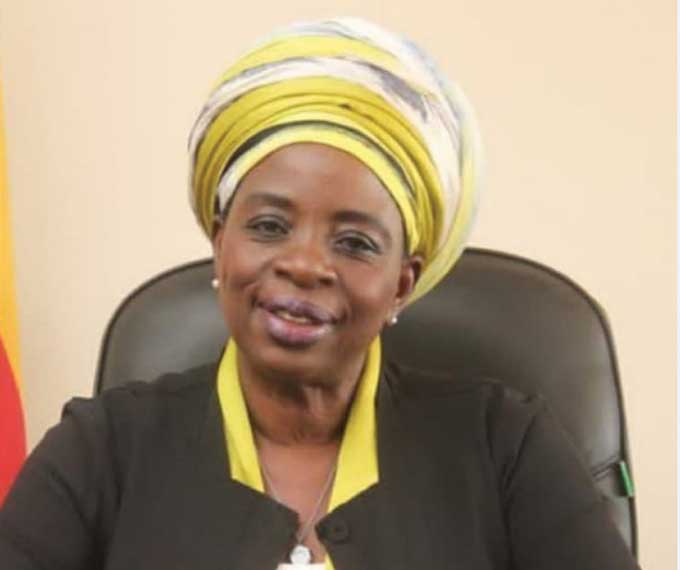
BY SHAME MAKOSHORI CHIEF executive officers (CEOs) and founders of Zimbabwe’s most successful firms say companies must move to diversify investments to tackle the obtaining economic crisis.
In several presentations at this year’s edition of the Women’s Executive Leadership Roundtable (WELR) in Kariba on Thursday, executives and entrepreneurs said defences to be rolled out to tackle these turbulences must include swinging into offshore investments.
WELR is organised annually by the CEO Africa Roundtable and is a “high-level platform for corporate chief executive officers and senior executives, in both private and public sector”. It was created to engender cross fertilisation of critical economic and business knowledge in and around Africa.
Insurers and pension funds have been pushing for the greenlight to pursue the same strategy saying current policies preventing them from investing offshore were regressive.
Business leaders have in the past few months been sweating over the deepening crisis as they try to make out the future for the besieged country.
The current crisis is happening barely a decade after similar turmoil knocked off the domestic currency in annual inflation figures that rocketed to 500 billion percent in 2008.
Following years of deflation, which was followed by single digit inflation figures, Zimbabwe swung back into three-digit inflation range in the past two months, while exchange rate volatilities and foreign currency shortages mounted.
The bloodbath has escalated fears that the country could be on the verge of a crisis of the forgettable 2008 proportions.
- Chamisa under fire over US$120K donation
- Mavhunga puts DeMbare into Chibuku quarterfinals
- Pension funds bet on Cabora Bassa oilfields
- Councils defy govt fire tender directive
Keep Reading
Pockets of basic commodity shortages have returned to haunt markets.
During last week’s conference, CEOs said instead of surrendering, the return of multifaceted crises should only mark the beginning of battles to defend firms and save the ailing economy.
Latifa Kassim, head of treasury at Nedbank, said CEOs could rely on both historical data and current developments to help them lay out defences that firms require to ride out the crisis.
“Zimbabwe’s economy is cyclical in nature, after year five, we go into volatilities,” Kassim said.
“But do we give up? Let’s go into survival mode. Look at businesses that allow you to sell in foreign currency, and consider offshore investments. It helps to protect investments,” she said, noting that any dalliance with offshore markets must be executed within the confines of Zimbabwe’s laws.
Mandas Marikanda, chief executive officer (CEO) at the Women’s Microfinance Bank, said in a market where the informal sector has been dictating how the economy behaves, it was important for entrepreneurs and business leaders to move in tandem with dynamics.
The International Monetary Fund estimates that about 60% of Zimbabwe’s economy is now informal, and millions of people are earning a living through that market.
This view has been backed by the recent huge market switch to seek foreign currency from an expensive black market, as formal markets including banks, struggle to provide money.
“The truth is, money is in the informal markets,” Marikanda said, as she laid out several ways of creating and defending wealth.
The CEOs were also concerned about the disparity between lending rate of 80% and deposits rates of about 26%.
They said while the ZSE (Zimbabwe Stock Exchange) has been on a bull run, value creation had been compromised by a range of hurdles.
One of the biggest indicators of a deepening crisis was banks’ careful lending regime, they noted.
Addressing the conference through a representative, Industry and Commerce minister Sekai Nzenza said a string of domesticated value chains being pursued by government might end up helping Zimbabwe fight “vicious cycles of price increases”. This would be done while unlocking growth opportunities for local firms.
The plan has been in place for several years, but it became a crucial part of Zimbabwe’s battle to stem economic decline since bloody confrontations exploded between Russia and Ukraine in February.
This is because the conflict sparked shortages in a cluster of crucial commodities including wheat and oil.
Zimbabwe was already battling to forestall multiple turbulences when war broke out, including sky rocketing inflation, forex shortages and an exchange rate crisis.
And in the past few weeks, the crisis has deepened, with currency battering escalating as confidence waned across markets, forcing authorities to implement a sea of ill-timed ad hoc policies.






